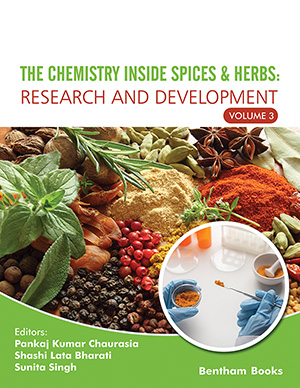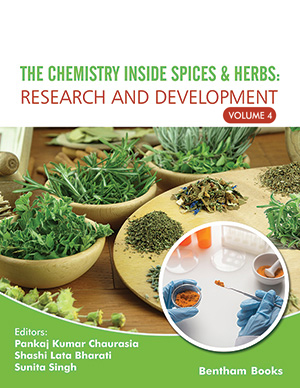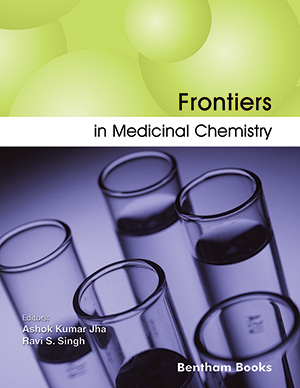Abstract
Hepatocellular carcinoma (HCC) is one of the most lethal cancers in the world. Its etiology includes chronic liver disease, viral hepatitis, alcoholism, and hepatic cirrhosis. Both oxidative stress and inflammatory mechanisms have been implicated in HCC pathophysiology. Surgical resection and liver transplants are currently used to treat HCC. Consequently, there exists a decisive requirement to explore possible alternative chemopreventive and therapeutic strategies for HCC. The use of dietary antioxidants and micronutrients has been proposed as a useful means for the HCC management.
Trace elements such as selenium are involved in several major metabolic pathways as well as antioxidant defense systems. In particular, selenium is an important oligo-element that plays a central role in cellular redox processes even if the amount necessary for the cell functions is in a very narrow range. However, selenium is involved in the prevention of numerous chronic diseases and cancers.
This review will examine the potential role of selenium in HCC prevention and treatment and, in detail, focus on: i) description of selenium in biological systems and in mammalian proteins, ii) involvement of selenium in HCC, iii) in vivo and in vitro effects of selenium in preclinical models of HCC and iv) potential challenges involved in the selenium use in the prevention and treatment of HCC.
Keywords: Selenium, hepatocarcinoma, chemoprevention, HCC, mammalian proteins, prevention, treatment, antioxidant, oligo-element, cellular redox processes, viral hepatitis, hepatic cirrhosis
Mini-Reviews in Medicinal Chemistry
Title: Has Selenium a Chemopreventive Effect on Hepatocellular Carcinoma?
Volume: 11 Issue: 7
Author(s): S. Costantini, M. G. Lepore, G. Castello and G. Colonna
Affiliation:
Keywords: Selenium, hepatocarcinoma, chemoprevention, HCC, mammalian proteins, prevention, treatment, antioxidant, oligo-element, cellular redox processes, viral hepatitis, hepatic cirrhosis
Abstract: Hepatocellular carcinoma (HCC) is one of the most lethal cancers in the world. Its etiology includes chronic liver disease, viral hepatitis, alcoholism, and hepatic cirrhosis. Both oxidative stress and inflammatory mechanisms have been implicated in HCC pathophysiology. Surgical resection and liver transplants are currently used to treat HCC. Consequently, there exists a decisive requirement to explore possible alternative chemopreventive and therapeutic strategies for HCC. The use of dietary antioxidants and micronutrients has been proposed as a useful means for the HCC management.
Trace elements such as selenium are involved in several major metabolic pathways as well as antioxidant defense systems. In particular, selenium is an important oligo-element that plays a central role in cellular redox processes even if the amount necessary for the cell functions is in a very narrow range. However, selenium is involved in the prevention of numerous chronic diseases and cancers.
This review will examine the potential role of selenium in HCC prevention and treatment and, in detail, focus on: i) description of selenium in biological systems and in mammalian proteins, ii) involvement of selenium in HCC, iii) in vivo and in vitro effects of selenium in preclinical models of HCC and iv) potential challenges involved in the selenium use in the prevention and treatment of HCC.
Export Options
About this article
Cite this article as:
Costantini S., G. Lepore M., Castello G. and Colonna G., Has Selenium a Chemopreventive Effect on Hepatocellular Carcinoma?, Mini-Reviews in Medicinal Chemistry 2011; 11 (7) . https://dx.doi.org/10.2174/138955711795906950
| DOI https://dx.doi.org/10.2174/138955711795906950 |
Print ISSN 1389-5575 |
| Publisher Name Bentham Science Publisher |
Online ISSN 1875-5607 |
Call for Papers in Thematic Issues
Bioprospecting of Natural Products as Sources of New Multitarget Therapies
According to the Convention on Biological Diversity, bioprospecting is the exploration of biodiversity and indigenous knowledge to develop commercially valuable products for pharmaceutical and other applications. Bioprospecting involves searching for useful organic compounds in plants, fungi, marine organisms, and microorganisms. Natural products traditionally constituted the primary source of more than ...read more
Computational Frontiers in Medicinal Chemistry
The thematic issue "Computational Frontiers in Medicinal Chemistry" provides a robust platform for delving into state-of-the-art computational methodologies and technologies that significantly propel advancements in medicinal chemistry. This edition seeks to amalgamate top-tier reviews spotlighting the latest trends and breakthroughs in the fusion of computational approaches, including artificial intelligence (AI) ...read more
Drugs and mitochondria
Mitochondria play a central role in the life and death of cells. They are not merely the center for energy metabolism but are also the headquarters for different catabolic and anabolic processes, calcium fluxes, and various signaling pathways. Mitochondria maintain homeostasis in the cell by interacting with reactive oxygen-nitrogen species ...read more
Mitochondria as a Therapeutic Target in Metabolic Disorders
Mitochondria are the primary site of adenosine triphosphate (ATP) production in mammalian cells. Moreover, these organelles are an important source of reactive oxygen and nitrogen species in virtually any nucleated cell type. The modulation of a myriad of cellular signaling pathways depends on the mitochondrial physiology. Mitochondrial dysfunction is observed ...read more
 12
12
- Author Guidelines
- Graphical Abstracts
- Fabricating and Stating False Information
- Research Misconduct
- Post Publication Discussions and Corrections
- Publishing Ethics and Rectitude
- Increase Visibility of Your Article
- Archiving Policies
- Peer Review Workflow
- Order Your Article Before Print
- Promote Your Article
- Manuscript Transfer Facility
- Editorial Policies
- Allegations from Whistleblowers
Related Articles
-
Targeting the Akt Kinase to Modulate Survival, Invasiveness and Drug Resistance of Cancer Cells
Current Medicinal Chemistry Lipids as Activators of Innate Immunity in Peptide Vaccine Delivery
Current Medicinal Chemistry Different Approaches for Obtaining Antibodies from Human B Cells
Current Drug Discovery Technologies Characterization of Solid Lipid Nanoparticles Containing Caffeic Acid and Determination of its Effects on MCF-7 Cells
Recent Patents on Anti-Cancer Drug Discovery Clinical Value of PET/CT in Staging Melanoma and Potential New Radiotracers
Current Radiopharmaceuticals Fabrication and Evaluation of Glabridin Tip-loaded Dissolving Microneedles
Current Drug Delivery RhoGEFs in Cell Motility: Novel Links Between Rgnef and Focal Adhesion Kinase
Current Molecular Medicine The Role of Soluble 5'-Nucleotidases in the Conversion of Nucleotide Analogs: Metabolic and Therapeutic Aspects
Current Medicinal Chemistry Sex Impact on Biomarkers, Pharmacokinetics and Pharmacodynamics
Current Medicinal Chemistry The Anticancer Properties of Dietary Polyphenols and its Relation with Apoptosis
Current Pharmaceutical Design Novel Subtype Specific and Universal Somatostatin Analogues: Clinical Potential and Pitfalls
Current Pharmaceutical Design Imaging Reporters and Multimodal Molecular Bio-Imaging: A Database of Available Probes for Multi-Modality Bio-Imaging of Reporter Gene Expression
Recent Patents on Medical Imaging TRPV1 Channel: A Potential Drug Target for Treating Epilepsy
Current Neuropharmacology Interleukin-18: Biology and Role in the Immunotherapy of Cancer
Current Medicinal Chemistry Novel Insights into Targeting ATP-Binding Cassette Transporters for Antitumor Therapy
Current Medicinal Chemistry Hemodynamic Assessment and In vivo Catabolism of Adenosine 5’-triphosphate in Doxorubicin or Isoproterenol-induced Cardiovascular Toxicity
Drug Metabolism Letters Proteasome Inhibitors: Recent Advances and New Perspectives In Medicinal Chemistry
Current Topics in Medicinal Chemistry Cancer, Signal Transduction and Nanotechnology
Current Drug Delivery Assays for Identification of Hsp90 Inhibitors and Biochemical Methods for Discriminating their Mechanism of Action
Current Topics in Medicinal Chemistry Synthetic Lethality and PARP-Inhibitors in Oral and Head & Neck Cancer
Current Pharmaceutical Design


























